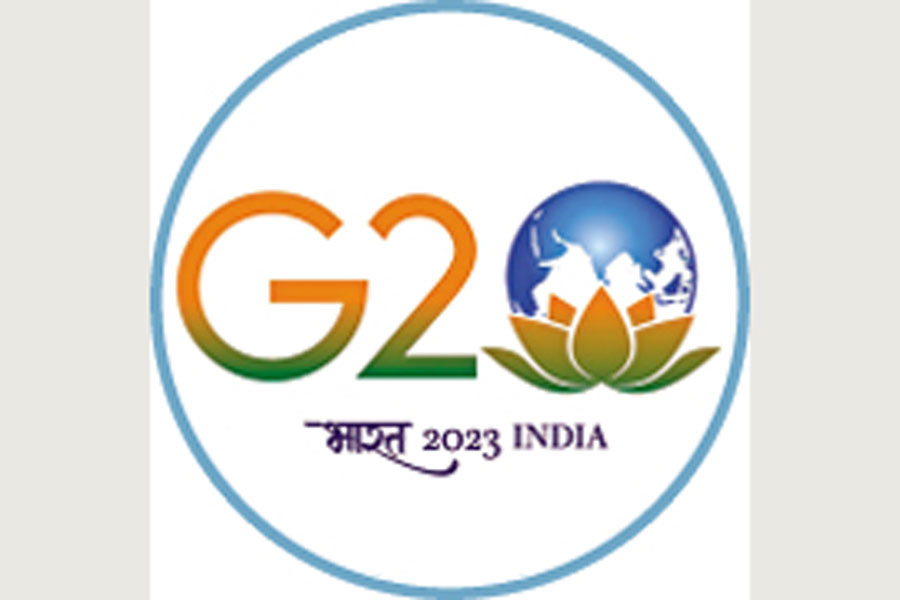
Published :
Updated :

The leaderships of the major economies have been keenly watching how India --- the current head of the informal gathering of the largest global economies G20 --- more specifically its prime minister Narendra Modi is going to play the role of a global leader. That is especially significant at a time when the heads of two of the important members, China and Russia, are absenting themselves from the Delhi summit. One may recall at this point that the forum emerged in 1999 following the Asian financial crisis as a discussion forum of the finance ministers and central bankers of the world's twenty largest economies, but then began to be represented by the heads of state and government of those economies since 2008.
The reason for the forum's increased importance is that at the peak of the global economic crisis in 2008, the forum could take quick decision to save the world economy from a free fall. It could take measures like making G20 nations agree to pump USD 4.0 trillion as life support into the big economies, especially their collapsing iconic financial institutions and industries. It also could take a strong position on doing away with the trade barriers and effecting radical reforms in their financial systems. However, during the following summits it has not been able to do much more than issuing anodyne communiques without strongly addressing the most pressing issues like synchronising fiscal and monetary policies, spurring economic growth, corruption, tax evasion, etc.
Now that the Chinese leader Xi Jinping, the head of the world's second largest economy, has chosen to sit on the fence and watch, and the Russian leader, Vladimir Putin, to avoid being put in an awkward position among his Western detractors, with whom he is at loggerheads following his invasion of Ukraine, the shine of the Delhi event has dimmed considerably. The hope that 2008's summit ignited, has failed to deliver since. For one should not forget, at this point, that the G20 members had earlier committed to not to erect new barriers to trade and investment. That is more so especially after the failure of the Doha round of talks. As the WTO through Doha rounds could not produce result, big economic and trading powers like the USA and the European Union have shifted their focus more on bilateral and regional trade agreements. Apart from the reduction or removal of tariffs, they are also intent on regulating issues relating to investment, intellectual property, climate change, etc. And the G20 can play such a role better by reaching consensus on those issues since its strong point has been consensus where larger forums like the WTO has often proved to be unwieldy.
Also, one should not forget that G20 is not a political or ideological platform. Even so, the Ukraine war has left its divisive impact on the forum. Western powers want Russia to be condemned in unambiguous terms for aggression against Ukraine. Russia being a long-term ally of India since the time of Cold War and a major supplier of arms to that country, it is indeed challenging for Indian leadership to play a neutral role at the summit. Amid the Western sanctions against Russia following the Ukraine war, India has rather moved closer than distancing itself from Russia often to the dismay of the USA and other Western partners, especially to buy fuel oil at a cheaper rate than in the international market. Against this backdrop, the hallmark of G20, a consensus-based joint declaration, from the Delhi summit is going to be an achievement on the part of the forum's current presidency.
At the end of its first day summit, however, Delhi summit claims to have agreed on a joint declaration of the world leaders present at the summit. It was adopted as the New Delhi Leaders' Declaration, in the form of a joint communique at final session of the two-day summit on September 10. However, short of outright condemning Russia for the war in Ukraine, it has used strong words condemning wars in general and the suffering they (wars) cause to people falling victim to them. Issues like climate change, food security and debt restructuring for the poorer nations also figured prominently at the summit discussion. And the Delhi summit, through inducting the 55-member African Union (AU) as permanent member, as part of its stress on inclusivity, has definitely created the condition for the global South to represent forcefully at this global economic forum. It was the Group's current presidency's commitment. However, the expansion of the G20 forum with more members will throw a bigger challenge before its members on reaching consensus declarations in the upcoming summits.
Of course, the US had its backing to make that happen in an obvious move to counterbalance China's growing influence in Africa. Also, the multinational economic corridor linking India through rail and shipping routes to the Middle East and Europe is yet another important development announced on the sidelines of the Delhi G20 summit. Again, it is yet another move initiated by the US as a challenge to the China's Belt and Road Initiative.
The developments point to how big power rivalries are surfacing in the G20 forum. Perhaps, Chinese leader Xi Jinping's absence from Delhi summit has a lot to do with the prospects of such developments on the occasion of the Delhi G20 summit.
sfalim.ds@gmail.com


 For all latest news, follow The Financial Express Google News channel.
For all latest news, follow The Financial Express Google News channel.